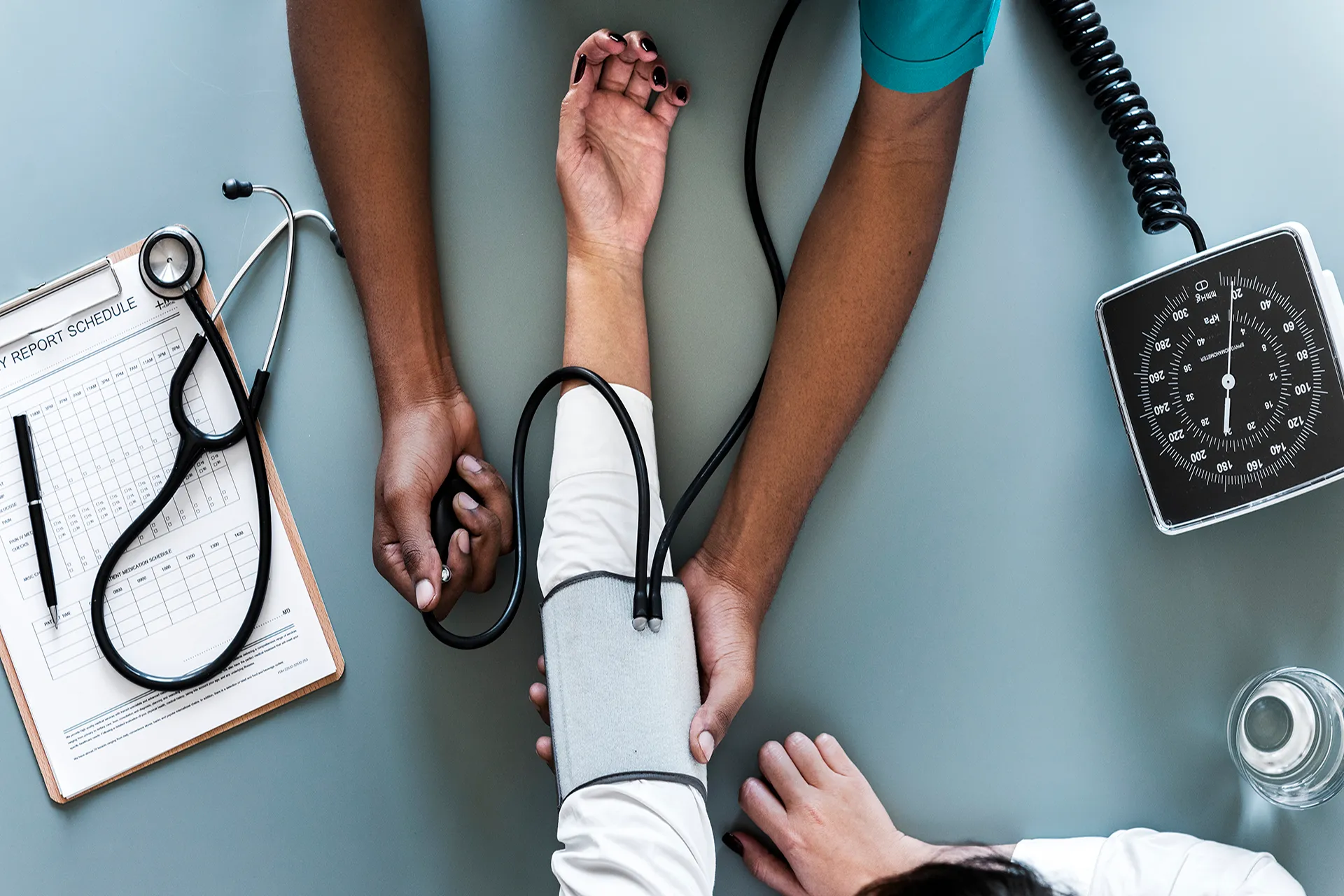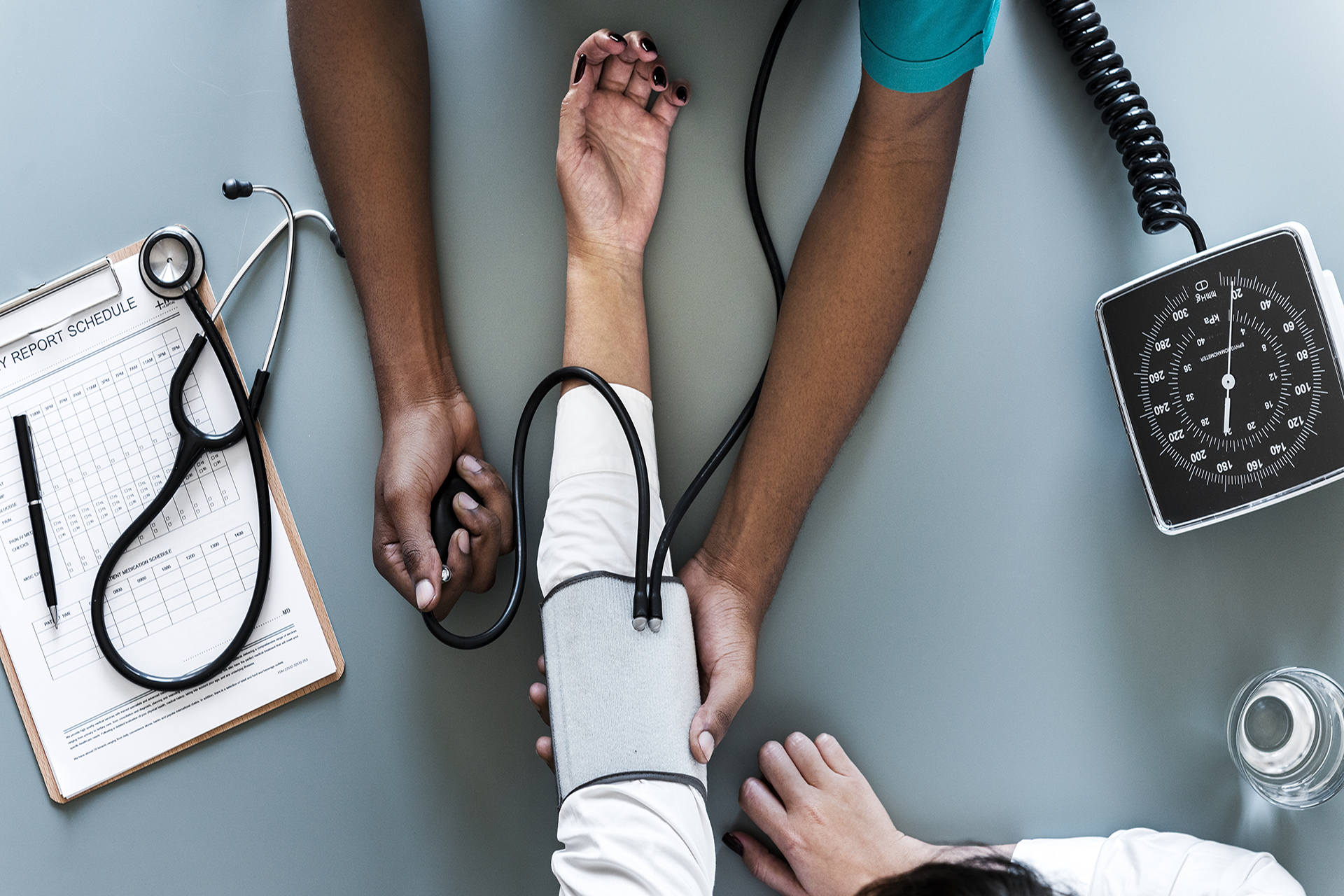Hypertension | 7 min read
Types of Hypertension: Causes, Risk Factors and Treatment
Medically reviewed by
Table of Content
Key Takeaways
- Hypertension is the most common reason for premature death across the world
- Early diagnosis and care is key to managing it and avoiding heart problems
- Unhealthy lifestyle, age and genetics are leading causes of hypertension
Hypertension or high blood pressure is one of the most common causes of cardiovascular diseases. While low blood pressure may lead to brain and heart damage in the worst cases, hypertension, if left untreated, can cause severe medical complications such as heart diseases, organ failure and, in extreme cases, a stroke.
Blood pressure is the measurement of all the blood passing through the blood vessels and the resistance it faces. Narrower arteries result in increased blood pressure, which over time can cause further health complications associated with hypertension.
As per WHO, hypertension is one of the most common causes of premature deaths worldwide. Even in India, approximately 57% and 24% of all strokes and coronary heart diseases, respectively, are caused by hypertension. Furthermore, studies have also shown that the cost of care and medication to manage or cure hypertension, along with untimely death, causes loss of sizable household income. In 2004, the annual income loss in working adults in India due to hypertension alone amounted to Rs.43 billion. Moreover, hypertension contributes to 10% deaths of all deaths in the country.
Additional Read: Quick Guide to HypertensionTherefore, early diagnosis is pertinent to the treatment and management of this condition. However, early detection is not easy, as hypertension slowly develops over the years without manifesting any symptoms. But even then, high blood pressure can damage vital organs like the kidney, eyes, brain, heart, and blood vessels.
Read on to know more about the types of hypertension, treatment options and risk factors.
Types of hypertension
There are four different types of blood pressure characterised based on their symptoms. The types of hypertension are mentioned below.
Primary hypertension
So far, the cause of this type of hypertension is unknown; however, most adults are afflicted with this type of hypertension. Common symptoms of primary hypertension include nosebleeds, dizziness, sudden and frequent headaches and fatigue.
Secondary hypertension
This type of hypertension is caused by known underlying conditions such as thyroid issues, adrenal or kidney ailments, or constriction of the aorta. It may also be caused due to medicinal side effects. Secondary hypertension commonly affects younger people in the age group of 18 to 40.
Resistant hypertension
Hypertension that is difficult to treat even with a host of medications, including a diuretic, is called resistant hypertension. This type of hypertension contributes to around 10% of all hypertension cases. Its common risk factor includes obesity, age or underlying medical conditions such as diabetes and kidney problems. Those with resistant hypertension may also have yet to be identified secondary underlying causes. Usually, detailed treatment and medication plans or identifying and treating the secondary underlying cause can help cure this type of hypertension.
Malignant hypertension
This type of hypertension causes severe organ damage, resulting in hospitalization. Elevated blood pressure greater than 180mm systolic or greater than 120-130mm diastolic causes malignant high blood pressure. Though rare, this type of hypertension requires immediate hospitalization and medical care. Some of the common symptoms of malignant hypertension are experiencing chest pains and blurry vision, feeling numb in the arms and legs and experiencing frequent and sudden headaches.
Additional Read: Systemic HypertensionSystolic Isolated Hypertension
Isolated systolic hypertension is characterized by systolic blood pressure, which is more than 140 mm Hg, and diastolic blood pressure of less than 90 mm Hg. This is usually found in older adults aged above 60 years. It usually is caused by the stiffening of arteries due to ageing.

Primary vs Secondary Hypertension
Primary hypertension is also called essential hypertension, and almost all adults get affected by this. The cause for this is usually unknown. Secondary hypertension, on the other hand, has an identifiable cause and affects younger people more. Primary hypertension is said to be a result of genetics, age, and lifestyle factors. Secondary hypertension can be due to multiple factors – narrowing of the arteries, sleep apnoea, hormonal imbalances, thyroid issues, and more.
Hypertension Stages
As per the new guidelines (of 2017), all blood pressure readings over 120/80 mm Hg are considered elevated. This system puts more people into the elevated category than before.
The different stages of hypertension are as follows:
- Normal Range: Diastolic - less than 80 mm Hg and Systolic - less than 120 mm Hg
- Elevated Range: Diastolic - less than 80 mm Hg and Systolic - between 120-129 mm Hg
- Stage 1 Range: Diastolic - between 80-89 mm Hg and Systolic - between 130-139 mm Hg
- Stage 2 Range: Diastolic - at least 90 mm Hg and Systolic - at least 140 mm Hg
If you have a family history of heart disease, diabetes, or other risk factors, starting treatment is recommended if you fall into the elevated stage of hypertension.
Risk Factors of Hypertension
Primary and secondary hypertension are the two main types of hypertension, and different factors are attributed as causes each. Primary hypertension, also called essential hypertension, is the most common type of hypertension, but as mentioned earlier, its exact causes are yet to be found. That being said, the following list of risk factors does elevate the chances of a person developing primary hypertension.
Age-induced physical changes
Ageing causes many changes in the body, including slowing down essential functions of vital organs, primarily if you have an unhealthy lifestyle. These sudden changes can cause an elevation in blood pressure. For example, if you are overweight, with age, the heart has to work harder to pump blood and results in high blood pressure.
Genetics
You may have inherited a mutated, abnormal gene from your parents, making you predisposed to hypertension. In such cases, you can take preventive measures while you are young to delay the condition's onset.
Environmental factors
High blood pressure develops over time and can stem from a series of unhealthy lifestyle choices such as not enough physical exercise, an unhealthy diet, being overweight and stress. These factors, especially obesity, can increase your chances of developing hypertension.
Secondary hypertension is caused by underlying medical conditions such as obstructive sleep apnea, congenital heart disease, issues in the blood flow of the kidneys and thyroid problems. Secondary hypertension can also be the result of side effects of medications, excessive drinking and smoking, and the use of illegal drugs.
Treatment and Management of Hypertension
A doctor will decide your treatment plan based on factors like your overall health and the type of hypertension you have. For instance, if you have primary hypertension, the doctor will suggest incorporating lifestyle changes such as an exercise regime and a healthy, balanced diet. However, if these changes do not lower your blood pressure, then the doctor may prescribe medication to treat the condition.
On the other hand, if an underlying condition is causing secondary hypertension, the doctor will focus on treating and managing the cause. This, along with lifestyle changes, should help maintain normal blood pressure. If not, the doctor will prescribe medication.
You ought to remember that the treatment plan for high blood pressure can keep on changing. Something that worked earlier may not work later due to several reasons such as aggravation of the underlying cause or increase in weight. However, it is best to continue trusting your doctor and strictly follow their advice and treatment plan.
Additional Read: High Blood Pressure Treatment At HomeHealth Complication of Hypertension
Hypertension develops slowly and can go undiagnosed for years; however, it can still damage vital organs and cause health complications. If high blood pressure is left untreated can cause fatal damage to the following.
Arteries
Hypertension causes the arteries to harden, constricting and narrowing them, causing difficulty in blood flow to the heart. This can cause blockage and elevate blood pressure, eventually causing a heart attack or stroke.
Brain
The brain needs a sufficient supply of oxygen-rich blood to conduct regular and essential functions. However, high blood pressure can restrict blood flow to the brain and cause transient ischemic attacks. Furthermore, depletion in oxygen-rich blood can kill brain cells, resulting in a stroke.
Heart
Hypertension forces the heart to work harder to pump blood, making it weaker and causing a heart attack, heart failure, and arrhythmias.
It is clear that the best way to prevent this condition to adopt a healthy lifestyle, maintain ideal weight and BMI, manage stress, exercise daily and have a healthy, nutritious diet. Moreover, to ensure you detect this condition early, regularly monitor your blood pressure at home or visit your doctor. This is easier to do with the Bajaj Finserv Health, which helps you find and book appointments with the best primary care physicians near you using filters concerning experience, area, consultation timings, fees and more.
Book instant consults either for an in-person visit or via video to get the medical advice you need. Get deals at top hospitals and wellness centres with its affordable health plans and offers features like medicine reminders to keep you in the pink of health.
References
- https://www.ncbi.nlm.nih.gov/pmc/articles/PMC4011565/
- https://www.ncbi.nlm.nih.gov/pmc/articles/PMC3724241/
Disclaimer
Please note that this article is solely meant for informational purposes and Bajaj Finserv Health Limited (“BFHL”) does not shoulder any responsibility of the views/advice/information expressed/given by the writer/reviewer/originator. This article should not be considered as a substitute for any medical advice, diagnosis or treatment. Always consult with your trusted physician/qualified healthcare professional to evaluate your medical condition. The above article has been reviewed by a qualified doctor and BFHL is not responsible for any damages for any information or services provided by any third party.




